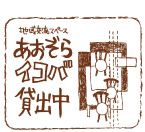The Involvement of Japan’s Lawyers in Environmental Issues
by Takeji Fujiwara
Lawyer
1. Japan’s Lawyer System and Its Role
Japan’s lawyers are qualified to practice by being registered in the attorney lists of the Japan Federation of Bar Associations and of the bar associations established in the jurisdictions of each district court. There are now 15,500 lawyers in Japan.
The mission of Japan’s lawyers is to safeguard basic human rights and bring about social justice. Under the law they must, in order to discharge this mission, perform their work with sincerity, and endeavor to maintain social order and to improve legal institutions. The bar associations to which lawyers belong are organized as corporations, and have the same mission as lawyers.
2. The Role of Lawyers in Environmental Issues
The work of redressing pollution damage and preventing pollution, as well as preserving and creating a decent environment, is essential if we are to live as people should.
Owing to Japan’s prewar and postwar industrial promotion policy, and the rapid economic growth policy that began in the 1960s, pollution of water and air worsened and caused serious harm around the nation. Our environment has also suffered grave damage.
In time, lawyers began taking action by seeing these environmental problems as those involving human rights. Finding redress for the victims of serious pollution, stopping pollution, and preserving the environment was the social mission imposed upon lawyers.
Having been placed in this situation, lawyers conceived themselves as people charged with the duty of safeguarding human rights, allied themselves with pollution victims, cooperated with scientists of many disciplines, located pollution sources, elucidated the causality between those sources’ pollutants and the harm caused, and then worked to demonstrate how the polluting companies and the national government were liable for paying compensation.
Such activities were carried out by group counsels each comprising a number of lawyers. Their first purpose was finding redress for pollution victims. Activities were initially limited to mainly court procedures, but the lawyers’ sphere of activities gradually expanded to include raising pollution victims’ consciousness on human rights, calling attention to the victims’ situation both in Japan and abroad, and working for solutions predicated on public opinion. In an effort to eliminate pollution, lawyers also became involved in activities seeking legislation from the national and local governments, and administrative improvements.
3. Bar Associations’ Activities on the Environment
Environmental problems are also social and political problems. Solving them requires a total solution through effective legislation and administration. Owing to such requests, bar associations began dealing with environmental problems, and on the basis of their own surveys and studies they proposed institutional reforms and legislation to legislative bodies and administrative agencies. However, the activities of bar associations differed from the activities on individual cases by individual lawyers and group counsels, because bar associations are not directly involved in individual cases. Bar associations’ activities are also independent of both victims and polluters because they aim to safeguard human rights from a fair and neutral position.
Even under Japan’s present circumstances, the citizens very much want lawyers and bar associations to be active on environmental problems, and the necessity has continued to grow.







